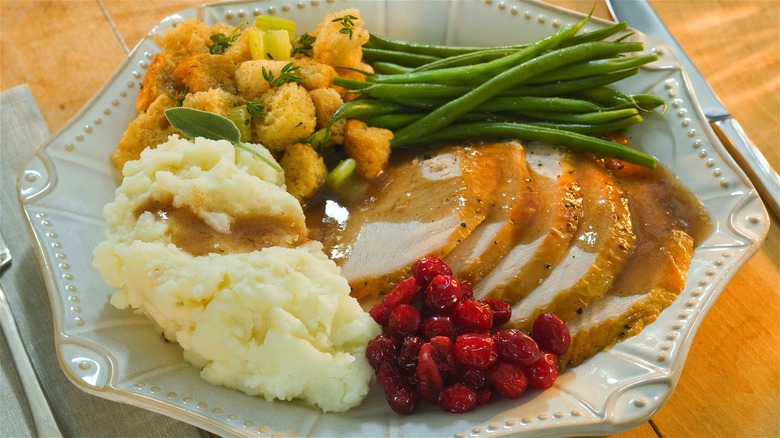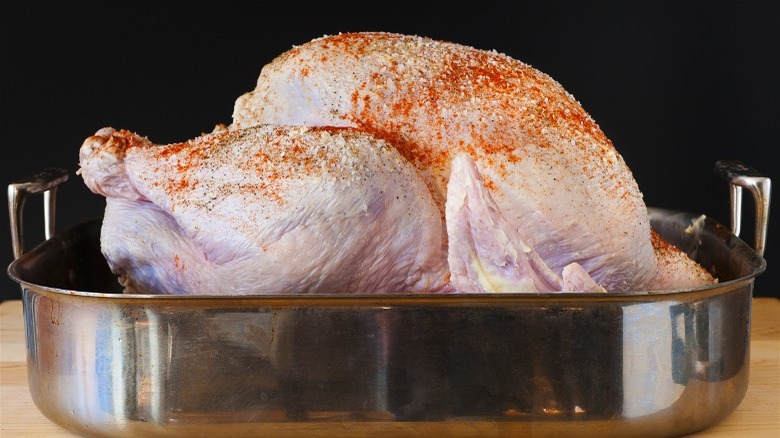The Dish That's A Major Cause Of Foodborne Illness At Thanksgiving
Thanksgiving: that special time of year when everyone gets together for the biggest feast of the season. From the fun family traditions to the delicious indigenous foods like cranberries, corn, and turkey, the main course, it's a favorite holiday among many Americans. However, one staple dish is the culprit behind many foodborne illnesses around Thanksgiving: the big bird at the table.
The CDC states that raw turkey can be contaminated with a range of germs, including Salmonella, Clostridium perfringens, and Campylobacter. Food poisoning happens when harmful bacteria, fungi, parasites, or viruses enter your gastrointestinal system through eating, causing your body to reject and expel the toxins. The Cleveland Clinic puts those who are pregnant, immunocompromised, under the age of 5, or elderly at the greatest risk of developing severe symptoms of food poisoning. Since people who fall into these categories are likely going to be at your family function, you'll want to make sure to cook your turkey safely.
Most people aren't serving raw poultry to their loved ones on Thanksgiving (at least, we hope not), but the risks are still there. And the consequences may include spending more time in the bathroom or in bed than hanging out with your favorite cousins. Keep yourself and your guests safe at Thanksgiving by following the proper safety protocols for preparing turkey.
Prevent turkey-related contamination with these simple steps
This may ruffle some feathers, but major health and food safety organizations do not recommend washing poultry before cooking. We get it: washing something makes it feel cleaner. But rinsing your uncooked turkey increases the likelihood of cross-contamination. Juices from the raw meat can splash onto kitchen surfaces and utensils and may leave behind traces of bacteria invisible to the human eye.
Turkey usually takes the longest to cook, since it must be thawed (ideally in the refrigerator). After preparing it and sticking it in the oven, clean your kitchen again before continuing your cooking. Maintain a sanitary workstation by washing your hands and disinfecting surfaces between handling raw poultry, meat, seafood, or eggs and any other foods. Keep any ready-to-eat foods away from the area and do not let them touch any utensil or dish that's come into contact with raw turkey or similarly concerning foods. For example, use different cutting boards for meat and vegetables.
Consider using a food thermometer to check for doneness and ensure that your turkey has cooked to the proper internal temperature of 165 degrees Fahrenheit, per USDA guidelines. After everyone has gotten their fill of Thanksgiving goodness, store leftovers in airtight containers in the refrigerator. Food shouldn't be left sitting at room temperature for more than two hours, according to the FDA. Finally, supervise young children or anyone with a bad reputation for washing their hands when they're fixing a plate of turkey — maybe switch out that serving fork, too. Sharing is caring, but not with germs.

